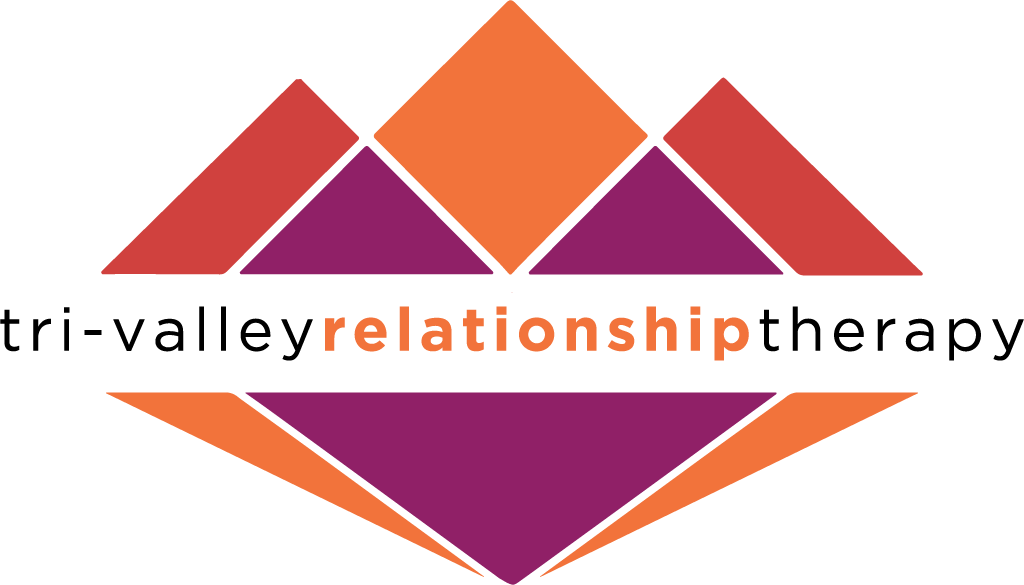Good Reasons For Opening Up Your Relationship
Open relationships can be incredibly rewarding, especially if the decision to open up was motivated by pro-relationship reasons. Couples counseling at Tri-Valley Relationship Therapy can help you and your partner negotiate opening up your relationship.
In the last article, I discussed how opening up a relationship for the wrong reasons could have negative consequences for all partners involved. Couples who find success in opening up their relationship are often driven by the mutual motivation to strengthen their bond as opposed to looking for a way out of the relationship.
Many people find open relationships to be incredibly rewarding, especially when opening up brings a couple closer and instills a sense of confidence in their relationship’s resilience.
The prerequisite for a successful open relationship is a secure bond between partners characterized by openness, honesty & transparency. Both partners must be able to negotiate the ground rules for opening up their relationship, in a fair and equitable manner. In certain situations, opening up a relationship is a much more desirable and pragmatic option than the alternative of separation or even dissolving the relationship.
Here are some good reasons for opening up a relationship:
Explore sexual orientation-
Couples where one partner is interested in exploring their sexual orientation, an open relationship can help the couple to negotiate a relationship contract to provide opportunities for such exploration. For example, if the female partner in a heterosexual couple is interested in exploring her attraction to women, the couple can use the open relationship model to help her explore her attraction without having to end her current relationship with her male partner. At times, in such situations, only the partner interested in exploring their sexual orientation engages in non-monogamy while their primary partner chooses to remain monogamous.
Long-distance relationship-
For couples engaged in a long distance relationship with very infrequent opportunities for seeing each other, an open relationship can resolve feelings of loneliness, lack of sexual fulfillment and satisfy the need for emotional connection. Depending on the ground rules that the couple has negotiated for their open relationship, it can assuage any fears of mistrust, infidelity or betrayal which become exaggerated due to the lack of physical & emotional proximity in a long distance relationship.
Spice up your sex life-
Open relationships can be a remedy for breaking away from sexual monotony. Couples can decide the rules for engagement and can play together such as swinging or give each other a hall pass for independent play outside of the primary relationship. The excitement and energy from new sexual experiences can help to refuel and reignite the passion in the primary relationship.
Explore threesomes-
Inviting a third partner into your bedroom within the context of an ethical non-monogamous relationship can be an exercise in enhancing intimacy. In order to skillfully navigate the inclusion of a third into their dyad, a couple has to face their fears about their partner and the relationship. The reward is a stronger connection and the confidence that the couple gains about being able to navigate situations and experiences that are different from the status-quo.
Explore sexual interests that your partner might not be into-
Open relationships work great for couples where one partner is interested in exploring a sexual interest that the other is not necessarily into. Couples, where one partner is into kink or BDSM, can use the open relationship model successfully to meet the needs of both partners. The kinky partner gets to dive into and explore their sexual interests and the mutually negotiated ground rules of the open relationship provide a sense of stability and safety to the non-kinky partner. The couple does not have to part ways or drag the uninterested partner into trying something that is not their cup of tea, in order to sustain the relationship.
Partner’s disability or sexual preference -
Couples, where one partner has a chronic illness or disability, that prevents them from being able to engage in sex can negotiate an open relationship, in order to meet the other partner’s sexual needs. Another instance where the open relationship model can be very helpful in maintaining the current relationship is where one partner prefers to not engage in sex for spiritual reasons such as wanting to be celibate or for personal reasons such as identifying as asexual.
You can access this article and other articles written by Dr. Nagma Clark on the Let's Talk Sex blog on Psych Central by clicking on this link:
https://blogs.psychcentral.com/sex-talk/2018/06/four-bad-reasons-for-opening-up-your-relationship/
Written by: Nagma V. Clark, Ph.D., L.P.C.C. specializing in sex therapy, couples therapy & marriage counseling, premarital counseling, individual relationship therapy & LGBTQQI couples counseling at Tri-Valley Relationship Therapy, Inc. in the East Bay, in Dublin & Oakland.
If you or your partner would like to explore opening up your relationship or need help with a relationship issue or concern, sex therapy & couples counseling at Tri-Valley Relationship Therapy, Inc. in the East Bay can help. Dr. Clark has advanced & specialized training in sex therapy & couples counseling and she has helped many couples & individuals resolve their sexual concerns.
Call 925-400-3541 or email doctor.nvclark@gmail.com to schedule a free 15-minute phone consult or fill out the contact form and you will be contacted within 12-24 hours.

